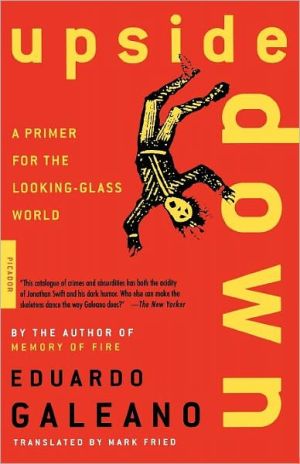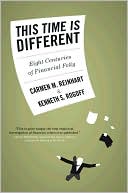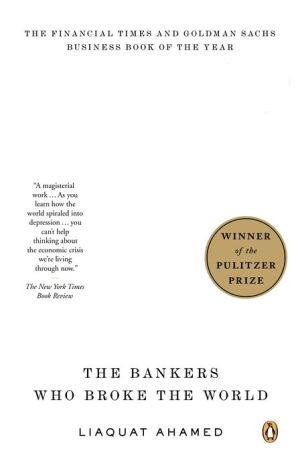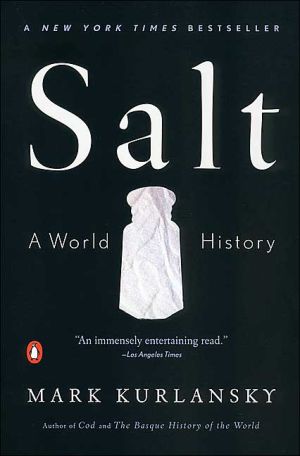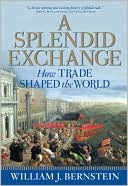Upside Down: A Primer for the Looking-Glass World
In a series of mock lesson plans, the author of the incomparable Memory of Fire trilogy provides an eloquent, passionate, funny, and shocking exposé of our first world privileges and assumptions. From a master class in "The Impunity of Power" to a seminar on "The Sacred Car"-with tips along the way on "How to Resist Useless Vices" and a declaration of "The Right to Rave"-he guides us through a world unevenly divided between abundance and deprivation, power and helplessness.\ Author Biography:...
Search in google:
From the winner of the first Lannan Prize for Cultural Freedom, a bitingly funny, kaleidoscopic vision of the first world through the eyes of the thirdEduardo Galeano, author of the incomparable Memory of Fire Trilogy, combines a novelist's intensity, a poet's lyricism, a journalist's fearlessness, and the strong judgments of an engaged historian. Now his talents are richly displayed in Upside Down, an eloquent, passionate, sometimes hilarious exposé of our first-world privileges and assumptions. In a series of lesson plans and a "program of study" about our beleaguered planet, Galeano takes the reader on a wild trip through the global looking glass. From a master class in "The Impunity of Power" to a seminar on "The Sacred Car"—with tips along the way on "How to Resist Useless Vices" and a declaration of "The Right to Rave"—he surveys a world unevenly divided between abundance and deprivation, carnival and torture, power and helplessness. We have accepted a reality we should reject, Galeano teaches us, one where machines are more precious than humans, people are hungry, poverty kills, and children toil from dark to dark.A work of fire and charm, Upside Down makes us see the world anew and even glimpse how it might be set right."Galeano's outrage is tempered by intelligence, an ineradicable sense of humor, and hope." -Los Angeles Times, front page Publishers Weekly One of Latin America's most honored historians and authors, Galeano (Memory of Fire) returns with more barbed and bewitching accounts of the contradictions of the First World, as filtered through the enlightened sensibilities of a Third World scholar-writer from Uruguay. He chastises the moneyed First World, which he terms the "upside down world," as a culture gone amok that "scorns honesty, punishes work, and prizes the lack of scruples." In a series of wickedly on-target parables, lessons and homilies that force the reader to question the state of the world as we know it, Galeano slams industrialized nations for turning their backs on critical issues of our time, including poverty, child abuse, patriarchal arrogance and political deception. In "Practicum: How to Make Friends and Succeed in Life," he examines the nature of power, be it cultural, political and religious, revealing how in each area power is maintained through secrecy, money and terror. Humor, sarcasm and careful research inform his short tales of greed and tyranny in full bloom in "Master Class on Impunity," which displays the author at his witty, sardonic best. Concluding his primer with the most potent of his lessons, "The End of the Millennium as Promise and Betrayal," he delivers his hardest blows with stream-of-consciousness truths that match the best work of Richard Pryor, Lenny Bruce and Thomas Merton: "What has the world left us? A desolate, de-souled world, that practices the superstitious worship of machines and the idolatry of arms, an upside-down world with its left on its right, its belly button on its backside, and its head where its feet used to be." This is arguably Galeano's most spirited and eloquent examination of our topsy-turvy modern world--a ticking literary hand grenade waiting to detonate in the mind of the reader. (Oct.) Copyright 2000 Cahners Business Information.
\ Publishers Weekly - Publisher's Weekly\ One of Latin America's most honored historians and authors, Galeano (Memory of Fire) returns with more barbed and bewitching accounts of the contradictions of the First World, as filtered through the enlightened sensibilities of a Third World scholar-writer from Uruguay. He chastises the moneyed First World, which he terms the "upside down world," as a culture gone amok that "scorns honesty, punishes work, and prizes the lack of scruples." In a series of wickedly on-target parables, lessons and homilies that force the reader to question the state of the world as we know it, Galeano slams industrialized nations for turning their backs on critical issues of our time, including poverty, child abuse, patriarchal arrogance and political deception. In "Practicum: How to Make Friends and Succeed in Life," he examines the nature of power, be it cultural, political and religious, revealing how in each area power is maintained through secrecy, money and terror. Humor, sarcasm and careful research inform his short tales of greed and tyranny in full bloom in "Master Class on Impunity," which displays the author at his witty, sardonic best. Concluding his primer with the most potent of his lessons, "The End of the Millennium as Promise and Betrayal," he delivers his hardest blows with stream-of-consciousness truths that match the best work of Richard Pryor, Lenny Bruce and Thomas Merton: "What has the world left us? A desolate, de-souled world, that practices the superstitious worship of machines and the idolatry of arms, an upside-down world with its left on its right, its belly button on its backside, and its head where its feet used to be." This is arguably Galeano's most spirited and eloquent examination of our topsy-turvy modern world--a ticking literary hand grenade waiting to detonate in the mind of the reader. (Oct.) Copyright 2000 Cahners Business Information.\ \ \ \ \ Library JournalWith this near-reverent look at current Latin American culture, Uruguayan Galeano adds to his impressive list of publishing credentials (e.g., the "Memory of Fire" trilogy) and awards (the American Book Award and the Lannan Prize for Cultural Freedom). He subtitles this lively volume a "primer"--that is, a primer for pessimism and doom. Considering life in what he terms the South (for readers, the nations of Latin America), he highlights the hopelessness of countries that are not the United States. Galeano offers realistic perspectives on children, crime, racism and sexism, advertising and consumers, and haves and have-nots in a corporation-dominated world. His writing is entertaining and often humorous, yet it yields considerable insight into the everyday expectations of our neighbors to the south, and the author's conclusions are most troubling. Small inserts within the text illustrate his points--the most telling of which focuses on a young boy consumed with watching television, who, when informed of the death of a favorite aging aunt, asks "Who killed her?" Highly recommended for academic and larger public libraries. [Previewed in Prepub Alert, 6/1/00; see "A Life Spent Turing Air into Lead," p. 235, for an interview with the author.--Ed.]--Boyd Childress, Auburn Univ. Lib., AL Copyright 2000 Cahners Business Information.\\\ \ \ New Yorker...Galeano, who in compiling this catalogue of crimes and absurdities has both the acidity of Jonathan Swift and his dark humor. Who else can make the skeletons dance the way Galeano does?\ \ \ \ \ Isabel FonsecaGaleano's pages are full of empathy, candor, unsettling connections and, fresh through more than 30 years, affront at the suffering of his country -- for Uruguay itself was in exile from its long traditions of tolerance. He writes in defense of his countrymen and others: the embattled Mexican Indians in Chiapas, Brazil's street children, the more than eight million children abandoned across Latin America. He is serious but far from deadly. He ends Upside Down with a wish list for the new millennium, including the desire that ''earnestness shall no longer be a virtue, and no one shall be taken seriously who can't make fun of himself.'' \ —New York Times Book Review\ \ \ \ \ Kirkus ReviewsGaleano (The Memory of Fire Trilogy, etc.) has set to paper an astonishingly straight-faced indictment of yanqui capitalism that-for all its freshness and wit-could well have been freeze-dried at about the time of Che Guevara's assassination.\ \ \ \ \ From the Publisher"Galeano's pages are full of empathy, candor, unsettling connections, and fresh through more than 30 years, affront at the suffering of his country—for Uruguay itself was in exile from its long traditions of tolerance. He writes in defense of his countrymen and others: the embattled Mexican Indians in Chiapas, Brazil's street children, the more than eight million children abandoned across Latin America . . . from the Internet to Interpol, from the vapidity of television to auto-itis, nothing is safe from Galeano's committed deconstructions."—Isabel Fonseca, New York Times Book Review\ "Galeano takes us on a dark tour through the rabbit hole at the End of History. Like the revolutionary printmaker Posada, he unmasks the belle epoque of the bourgeoisie as a danse macabre of the masses. No one has focused greater moral clarity on the inhuman conditions and radical inequalities that sustain the mirage of the New Economy."—Mike Davis, author of Ecology of Fear\ "This catalog of crimes and absurdities has both the acidity of Jonathan Swift and his dark humor. Who else can make the skeletons dance the way Galeano does?"—The New Yorker\ "Galeano blends memoir with political analysis, tale-telling with cultural critique . . . He makes the world feel larger. Galeano puts the New Economy on trial, condemning those who accept a 'reality' that rejects the poor, and would allow globalization to reduce culture to entertainment, life to a spectacle, and news to advertising . . . the blend of fictional forms, autobiography, and radical social critique remains fresh for readers who yearn to find literary works with a political compass."—Lenora Todaro, The Village Voice\ "He keeps the radical faith with dry wit, endless curiosity, and an unceasing appetite for absurdity. Upside Down, rife with subversive aphorisms and revealing statistics—to catch 100 criminals a year, Mexico City requires 1,295 police officers, while London makes do with 18—might well be his best work yet."—Jesse Berrett, Mother Jones\ "Galeano uses his craft to invade the reader's mind, to persuade him or her to surrender to the charm of his writing and the power of his idealism."—Isabel Allende\ "We expect the unexpected from Eduardo Galeano, and he never disappoints us. Upside Down is a brilliant map of our human journey with all the landmarks of joy, pain, and lunacy that define it. No one writes more directly to the human condition, and no one better evokes the tragedy-comedy that plays upon our fragile planet. Eduardo Galeano exceeds himself time and again—he is a force of nature, grand, dangerous, and irrestible. Bravo!"—N. Scott Momaday, author of House Made of Dawn\ "Galeano's pages are full of empathy, candor, unsettling connections . . . He is serious but far from deadly . . . From the Internet to Interpol, from the vapidity of television to auto-itis, nothing is safe from Galeano's committed deconstructions."—Isabel Fonseca, The New York Times Book Review\ "This is arguably Galeano's most spirited and eloquent examination of our topsy-turvy modern world—a tickling literary hand grenade waiting to detonate in the mind of the reader."—Publishers Weekly\ "Galeano's outrage is tempered by intelligence, an ineradicable sense of humor, and hope."—The Los Angeles Times\ \ \
